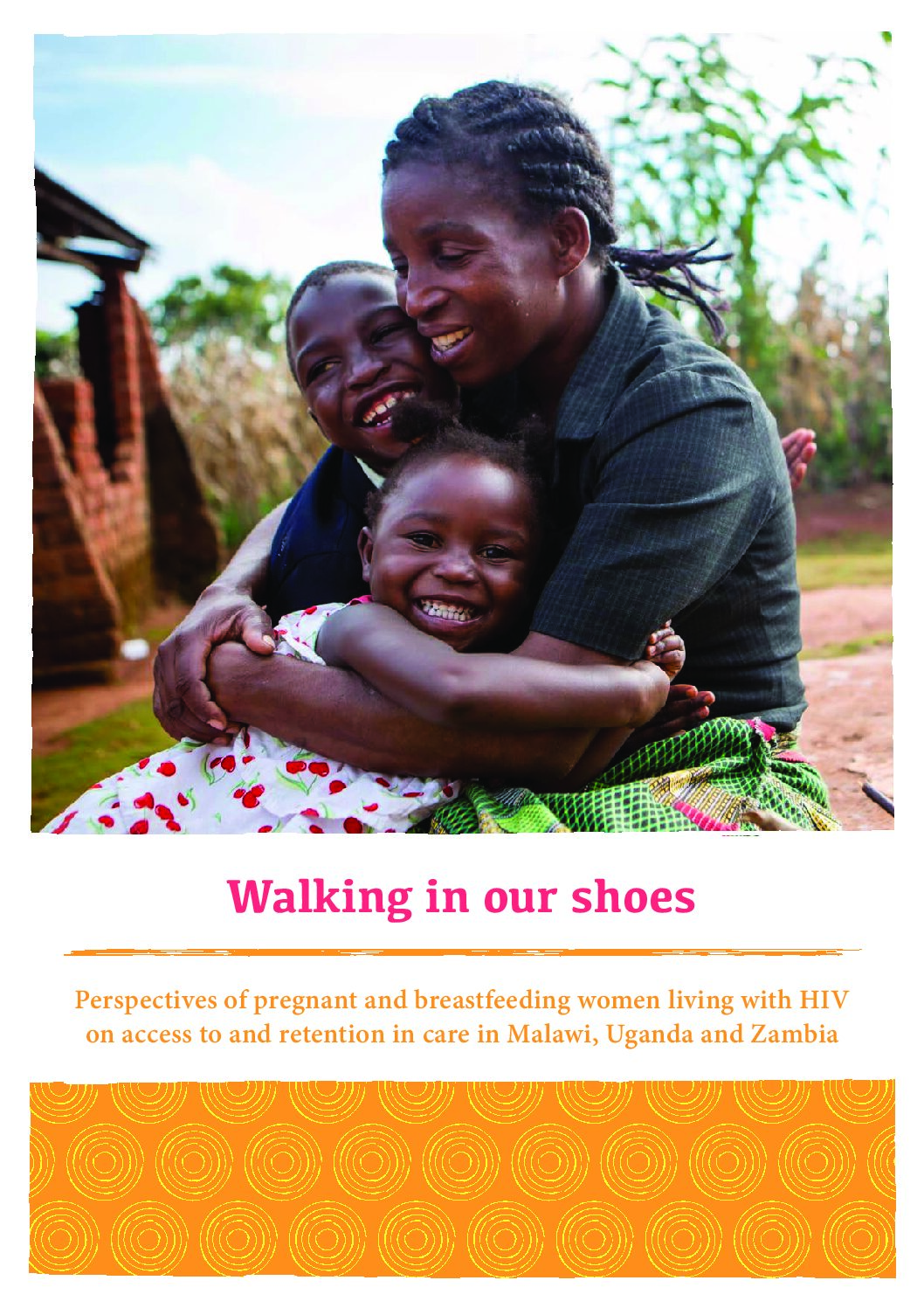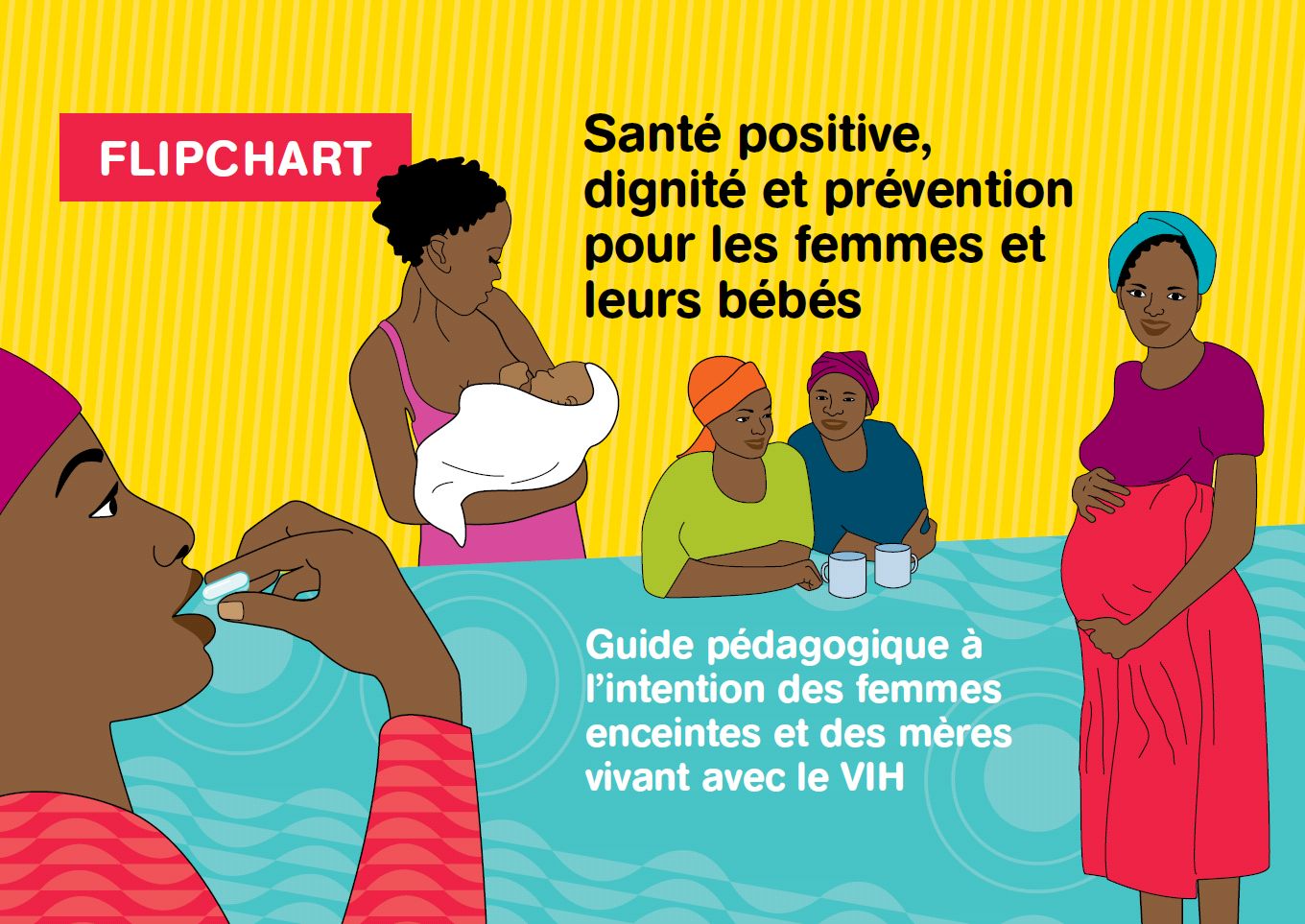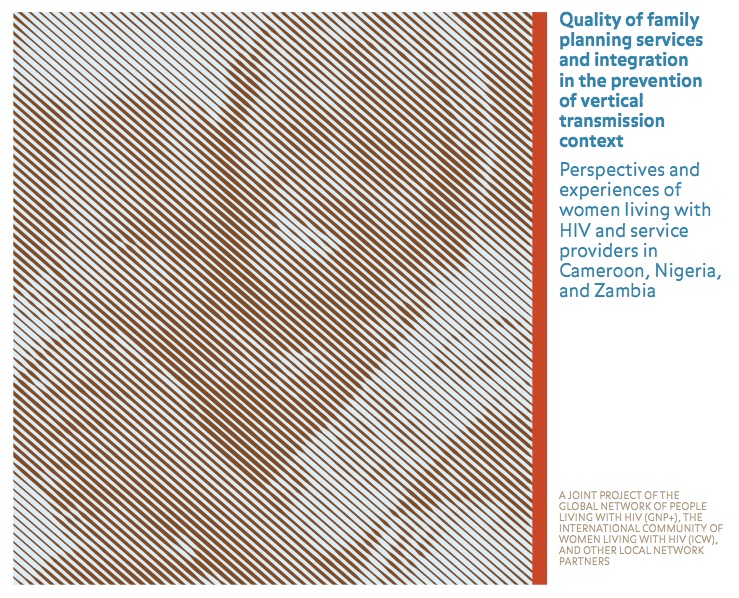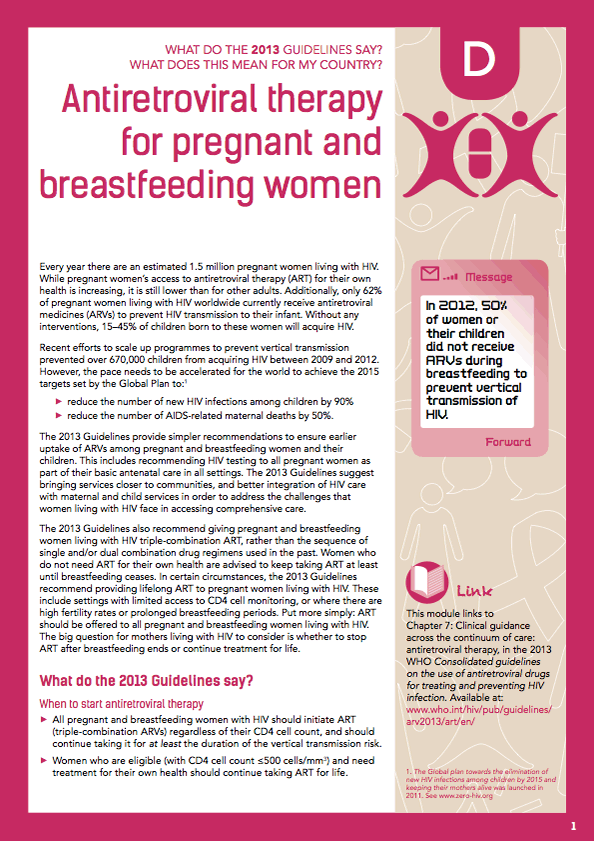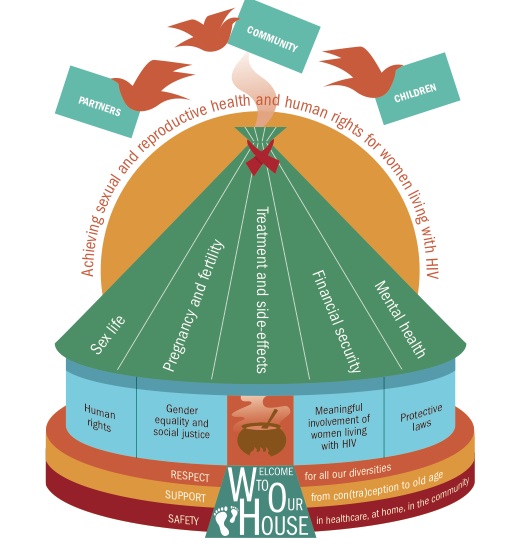This report highlights the key factors that facilitate retention in care for women living with HIV and calls for increased focus on rights and dignity in care. The report presents the findings of community-led research related to the viewpoints and experiences of women who were initiated on antiretroviral treatment during pregnancy or breastfeeding and explores their perspectives on factors that have enabled them to successfully adhere to their treatment and retain in care.
The research for this report was coordinated jointly by GNP+ and the International Community of Women living with HIV (ICW) in partnership with ICW Eastern Africa and ICW Malawi and the Network of Zambian People living with HIV/AIDS (NZP+). This research, carried out by and for women living with HIV was conducted in three countries, Malawi, Uganda and Zambia, all of which are early implementers of the lifelong ARV treatment program (Option B+). Focus group discussions were held with women living with HIV who utilized services along with key informant interviews with healthcare workers, government representatives, international NGOs and community groups.
The aim of this research project is to develop a set of best practices on how healthcare systems can retain women living with HIV into lifelong care now that pregnant women living with HIV are being offered lifelong treatment. The report outlines from their own perspectives what factors help women living with HIV adhere to lifelong treatment and care.




